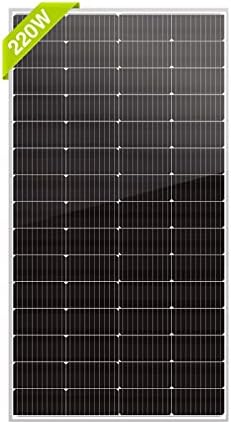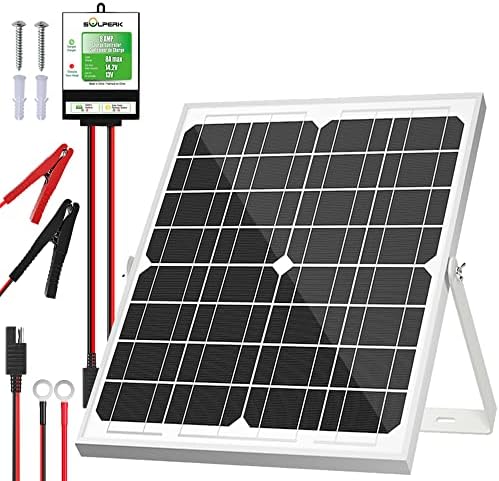**Breaking Down the Costs: Is Solar Energy Worth the Investment?**
Picture this: bright blue skies, a gentle breeze rustling through the trees, and the comforting hum of electricity drawn straight from the sun. A few months ago, I woke up to the sight of my solar panels glistening in the morning sun, knowing I was harnessing nature’s power—and doing so without depleting my bank account any further. As I stood there, sipping my morning coffee, a thought crossed my mind: is solar energy really worth the investment? After calculating the costs, savings, and environmental impact, I found a clearer perspective that I want to share with you.
### Understanding Solar Energy Costs
When considering solar energy, the first thing that comes to mind is the initial cost. Typically, a residential solar panel installation can range from $15,000 to $30,000, depending on factors like system size, equipment quality, and installation complexity. But before you wince at those numbers, let’s break it down.
1. **Initial Investment**
– **Solar Panels and Equipment**: The most substantial part of the investment. High-efficiency models come with a higher price tag but can yield better long-term benefits.
– **Installation Costs**: Labor and installation can add 10-25% to your overall costs. Find reputable local contractors and gather multiple quotes to ensure you’re not overpaying.
2. **Government Incentives**
– **Tax Credits**: The Federal Solar Tax Credit allows homeowners to deduct a significant percentage of installation costs from their federal taxes. Currently, it stands at 26% for systems installed by the end of 2022, gradually decreasing in subsequent years. State and local incentives can also lower costs significantly.
– **Grants and Financing Options**: Various states offer solar grants, rebates, and community solar initiatives that can make upfront costs more manageable.
### The Long-Term Financial Picture
While the initial investment is significant, it’s crucial to focus on the long-term financial benefits of solar energy:
1. **Energy Independence**: Solar panels can dramatically reduce or even eliminate your electricity bills, particularly in sunny states. Many homeowners report savings of $100 or more monthly.
2. **Home Value Increase**: Solar installations can increase property values. According to studies, homes with solar energy systems tend to sell for more than their non-solar counterparts.
3. **Return on Investment (ROI)**: On average, residential solar systems pay for themselves in about 5 to 10 years, depending on local utility rates, solar incentives, and the system’s size. Over a typical lifespan of 25 years, you’ll continue to enjoy free electricity.
### Environmental Impact and Sustainability
Using solar energy isn’t just about financial investment; it’s also about making a conscious decision to protect our planet.
– **Carbon Footprint Reduction**: Utilizing solar energy can reduce household carbon emissions by an average of 2 to 4 tons of carbon dioxide per year, equating to the environmental impact of planting roughly 100 trees.
– **Sustainable Energy Source**: Unlike fossil fuels, solar energy is renewable and abundant. Harnessing it contributes to a sustainable future by decreasing reliance on non-renewable energy sources.
### Pro Tips for Maximizing Your Solar Experience
If you’re considering jumping into the solar energy pool, here are some pro tips to ensure you make the most out of your investment:
1. **Do Your Research**: Research local solar providers, read customer reviews, and ask for recommendations. This can save you money and headaches in the long run.
2. **Opt for Quality**: Invest in high-quality panels and inverters, even if they come with a higher upfront cost. Cheaper equipment may not last as long, negating potential savings.
3. **Consider a Battery Backup**: If budget allows, opt for a battery system to store extra energy produced during the day. This provides reliable energy even when the sun isn’t shining.
4. **Monitor Your System**: Most modern solar systems come equipped with monitoring software. Regularly check your energy production and consumption to ensure everything is functioning optimally.
5. **Plan for Energy Needs**: Before installing solar, analyze your electricity usage. Consider if energy-efficient appliances or changes in your energy habits could lower your consumption.
### Potential Downsides to Consider
While the benefits of solar energy are plentiful, it’s crucial to acknowledge that it’s not a one-size-fits-all solution.
– **Intermittency Issues**: Solar energy generation can fluctuate based on weather conditions and time of day. For those in less sunny locations, this can be a limiting factor.
– **Upfront Costs**: Not everyone can afford the initial investment, even with incentives. Financing options may help, but potential debt can be a deterrent.
– **Space Requirements**: Not all homes have enough roof space or face the right direction to optimize solar energy. In such cases, ground-mounted systems or community solar options could be worthwhile alternatives.
### Conclusion: Is Solar Energy Worth the Investment?
After weighing the costs, potential savings, and environmental impact, the answer seems to lean toward a resounding “yes.” Solar energy can be a financially sound choice that promotes sustainability and energy independence.
But like any financial decision, the right call ultimately depends on your unique circumstances. By understanding your energy needs, researching options, and staying informed about government incentives, you’ll be well-equipped to make an informed choice.
As you ponder whether to make the leap into solar energy, remember that this investment not only pays off financially but also contributes to a healthier planet for future generations.
### Final Thoughts
Every day is an opportunity to invest in a brighter future. Whether you’re motivated by financial savings, environmental responsibility, or energy independence, going solar can illuminate your path. With adequate research and planning, you might find that the sun truly shines brighter for those who harness its power.
If you’re curious about taking that step, start talking to local solar providers, evaluate your energy needs, and uncover the financial and environmental value waiting for you. The sun is shining, and it might just be the right time to bask in its benefits!



